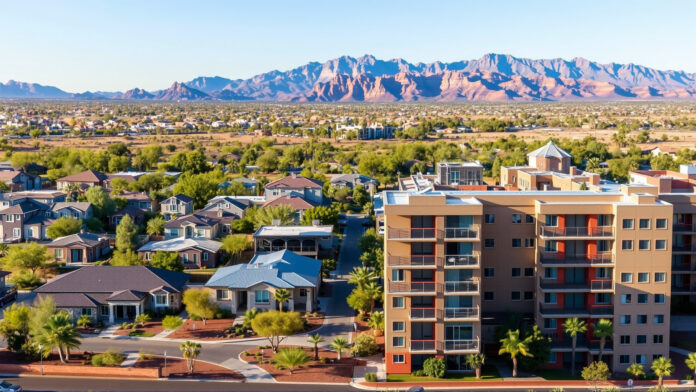When deciding whether to buy or rent in Tucson, factors such as cost, flexibility, and long-term financial benefits come into play. Let’s explore the pros and cons of each option to help guide your decision-making process.
The Benefits of Buying a Home: Building Equity and Investment
One of the most appealing aspects of homeownership is building equity. As you pay off your mortgage, you’re investing in a tangible asset that can appreciate over time. Tucson’s real estate market has shown strong growth; since 2020, home prices have risen by approximately 49%, which has added significant value to homeowners’ investments.
With recent interest rate drops—mortgage rates have fallen from over 7% to closer to 6%—now might be an especially good time to consider buying. Lower rates translate to reduced monthly payments, potentially saving thousands over the life of your loan.
The Cons of Buying: Upfront Costs and Long-Term Commitment
On the flip side, buying a home does come with higher upfront costs. You’ll need to cover the down payment, which is typically around 3-20% of the home’s value, as well as closing costs and other fees. Additionally, owning a home means taking responsibility for maintenance, which could lead to unexpected expenses. However, these concerns can be alleviated through options like home warranties to cover major repairs, or considering properties like condos that require less upkeep.
Finally, homeownership is a long-term commitment. Selling a home isn’t as quick as ending a lease, so those who value flexibility should weigh this against the benefits of investment.
The Benefits of Renting: Flexibility and Lower Immediate Costs
Renting offers a level of flexibility that homeownership does not. Tucson has a strong rental market, with the median rent for a two-bedroom unit currently at $1,355. Renters can move more easily and don’t have to worry about property maintenance, which is handled by the landlord.
Additionally, renting typically requires much lower upfront costs, with only a security deposit and first month’s rent due initially, making it an attractive option for those who need to save more for a down payment.
The Cons of Renting: No Equity and Rising Rent Costs
One of the biggest drawbacks of renting is that monthly payments go toward the landlord’s investment, not your own. You won’t build equity or gain tax advantages like homeowners do.
Moreover, Tucson renters have faced increasing costs. Rents have risen by 5.2% year-over-year, and recent reports indicate that rental rates could continue to climb due to increased demand and operational costs for property owners. This makes long-term renting potentially less predictable and more costly compared to a fixed mortgage.
Which Option is Right for You
Both renting and buying have their advantages, but if you’re looking to build long-term wealth and stability, homeownership in Tucson remains a smart choice. With interest rates dropping, now is a great time to consider purchasing a home, whether you’re interested in a single-family residence, condo, or townhome. Ready to take the next step? Visit our Buyers’ Section to learn more about the home buying process, and contact Tony Ray Baker to get started today!







